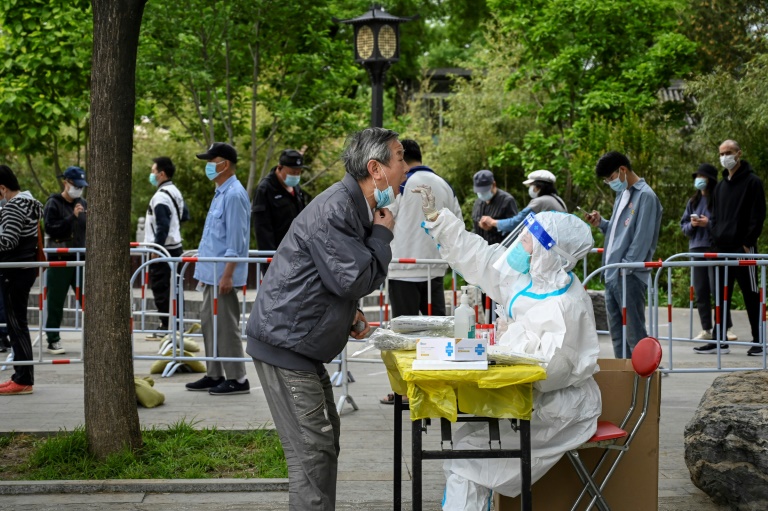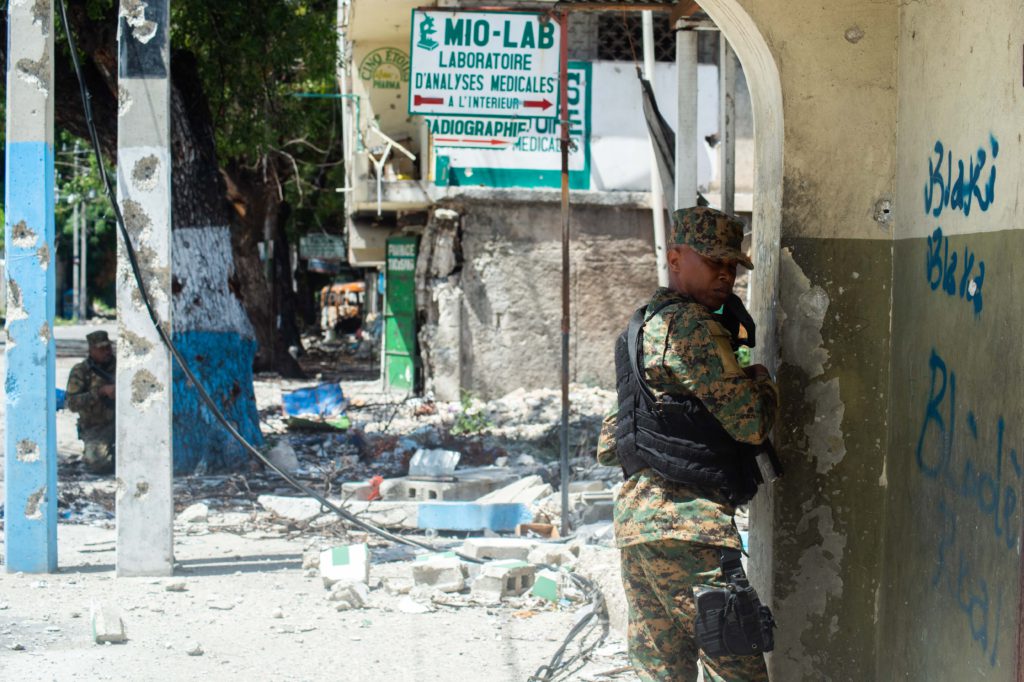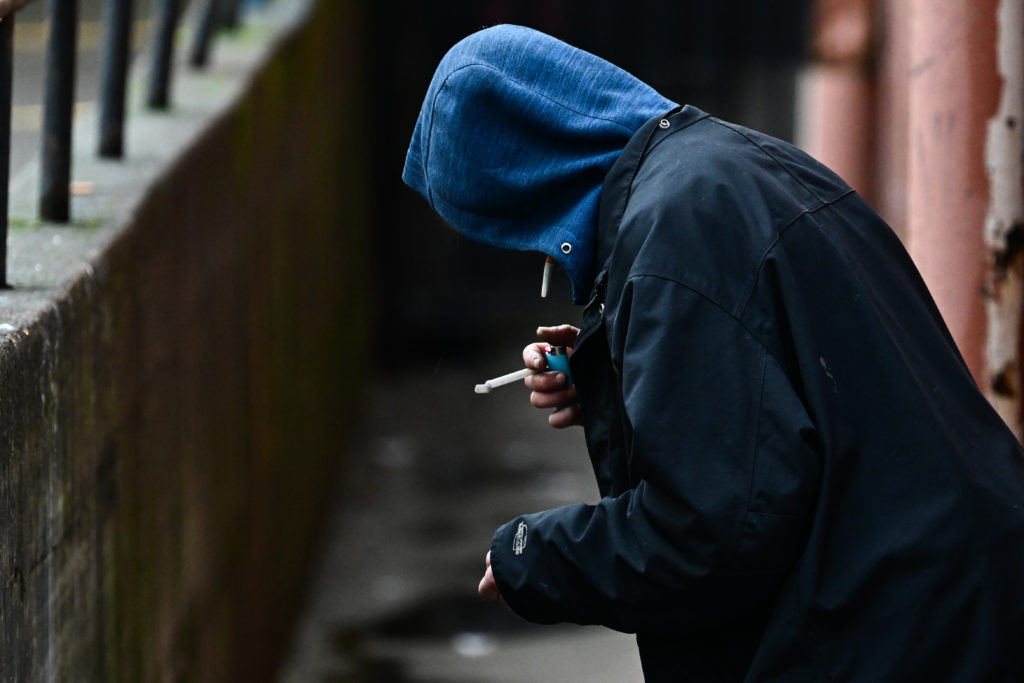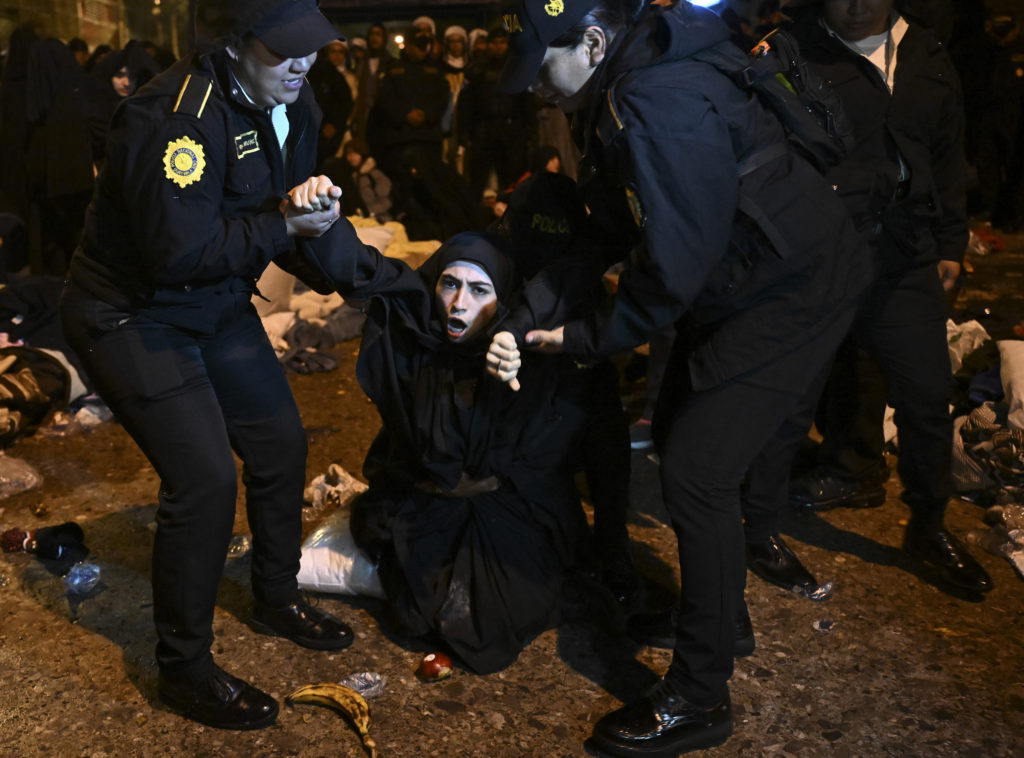Millions of people in Beijing stayed home on Monday as China’s capital tries to fend off a Covid-19 outbreak with creeping restrictions on movement.
Beijing residents fear they may soon find themselves in the grip of the same draconian measures that have trapped most of Shanghai’s 25 million people at home for several weeks.
Officials there have said the eastern powerhouse is winning its battle against the country’s worst outbreak since the pandemic began.
Yet the Shanghai lockdown has intensified, causing outrage and rare protest in the last major economy still glued to a zero-Covid policy.
That policy has winded an economy which just months ago had shown China was bouncing back fast from the pandemic.
Customs data released Monday said exports in April slumped to their lowest monthly rate since June 2020, as key supply chains from Shanghai to Shenzhen became knotted by restrictions.
There is also a pressing political dynamic to China’s virus response, with President Xi Jinping pegging the legitimacy of his leadership to protecting Chinese lives from Covid.
Xi, who is expected to secure another five-year term as president later this year, has doubled down on the zero-Covid approach, despite mounting frustrations among the public.
In Beijing, subway stations and offices were empty during rush hour Monday morning across Chaoyang — the city’s most populous district — after officials stepped up a work-from-home order on Sunday over rising Covid cases.
Non-essential businesses in the district, home to 3.5 million people, were shuttered, with even the Apple store in the popular Sanlitun shopping area ordered to close after opening briefly in the morning.
“I feel very uncomfortable seeing so few people around,” Wang, a middle-aged cleaner waiting outside a restaurant for her shift to start, told AFP.
Beijing has reported hundreds of infections in recent weeks, with 49 new Covid-19 infections confirmed on Monday, a relatively tiny number by international comparisons but enough to stir restrictions in the political heart of the country.
Some finance workers were moving into hotels near their offices, as restrictions start to shape daily life in the city of 21 million.
“Our company said we should try not to go home as they feel that there may be risks in commuting,” a Beijing-based investment manager who has moved into a hotel near his workplace.
“Some of my friends have been advised not to take public transport to work, and to drive or take a bicycle, so as not to be affected by the spread.”
– Shanghaied –
Shanghai has borne the brunt of the country’s Omicron surge, with more than 500 deaths, according to official numbers.
The financial hub has ordered multi-day curfews for residents of multiple neighbourhoods, according to notices seen by AFP, even as daily case numbers have dwindled into the low thousands.
Anger has seethed online at the perceived bungling of virus controls, mixed messaging and heavy-handedness of Shanghai officials, including sweeping people with negative Covid tests into state quarantine and leaving entire neighbourhoods short of food.
The frustration has also hit the streets — in a country where protest is rare and swiftly snuffed out by authorities.
Authorities have verified a video that ripped across social media over the weekend showing residents in Zhuanqiao Town neighbourhood clashing with hazmat-suited health authorities over food shortages.
“Police took action as soon as possible to persuade onlookers to disperse and calm the situation down,” a statement by the Zhuanqiao Town Covid response team said Sunday.
“According to an on-site investigation, the troublemakers had sufficient supplies at home.”
Residents of the neighbourhoods hit by new curfews — including some areas previously declared lower-risk — have been ordered not to step out of their apartments except for PCR tests for as long as a week and forbidden from ordering “non-essential” deliveries, according to the notices.











